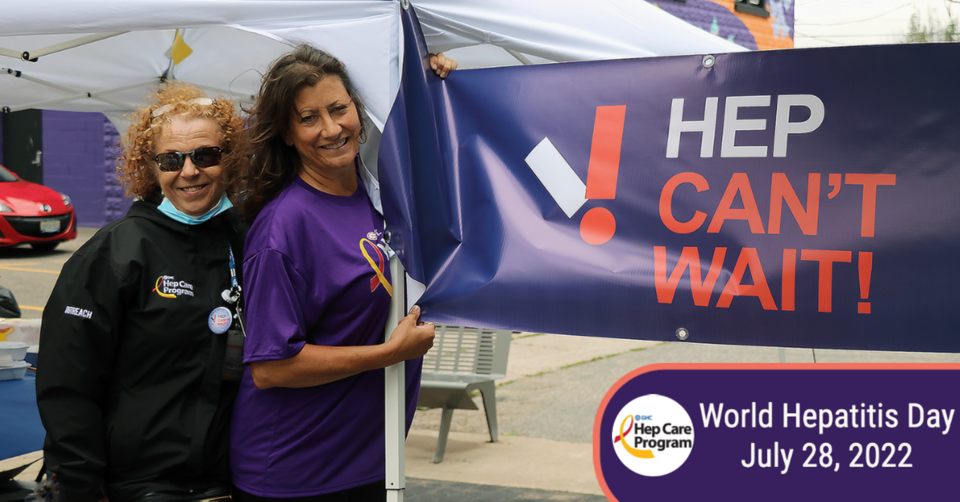The Group Health Centre's HEP Care Program raised awareness about Hepatitis C testing during World Hepatitis Day.
The event took place Thursday and focused on the importance of testing and treatment of Hepatitis C, and tests were available on site at the March Street Stage.
The full GHC press release is included below.
On Thursday, July 28, the Group Health Centre’s HEP Care Program, with the support of the Ontario Aboriginal HIV/AIDS Strategy (OAHAS) hosted an event to raise awareness of the importance of getting tested for Hepatitis C. This is a viral blood infection that causes liver inflammation which can lead to severe liver damage without treatment.
This event coincided with World Hepatitis Day (July 28). A day recognized worldwide where organizations host events to raise awareness of Hepatitis and encourage people to get tested.
GHC’s event took place on the March Street Stage (corner of March and Queen Street). The afternoon event offered the opportunity for attendees to get tested for Hepatitis C and to attend information sessions presented by GHC’s Hep Care Program team.
“We believe it is vital for services like this to be available to every member of our community, especially those who may be at higher risks of contracting Hepatitis C,” said Jennifer Zufelt, HEP Care Program Manager. “Events like this are not only an opportunity for us to increase awareness, but also encourage prevention, diagnosis and treatment.”
The Hepatitis C virus spreads through contact with blood, either through breaks in the skin or in the lining of the nose and mouth. There are many ways Hepatitis C can be transmitted, such as sharing equipment for injecting, smoking or snorting drugs, re-using tattooing or piercing equipment that was not cleaned properly, or re-using medical equipment meant to be used only once.
“It might surprise you to learn that about half of the people with Hepatitis C don't know they're infected, mainly because they have no symptoms, which can take decades to appear,” said Zufelt. “This is why we are working so hard to increase public awareness and promote the testing services we have available at GHC.”
Until recently, Hepatitis C treatment required injections and oral medications that many people couldn't take because of other health conditions or adverse side effects. However, today, Hepatitis C is usually curable with oral medications taken daily for two or three months with minimal side effects.
GHC’s HEP Care Program is working with its local community partners to reach out to those communities affected by Hepatitis C and provide the support they need to help improve the health and wellness of individuals living with the virus. This ministry-based program aims to eliminate the virus in Ontario by 2030.
To learn more about the HEP Care Program or one of the other programs at GHC, please visit www.ghc.on.ca.
About the Group Health Centre’s HEP Care Program
The GHC Hep Care Program includes a specially trained social worker, outreach worker, two registered nurses, and a physician who helps people with Hepatitis C (and co-infected patients with Hepatitis B or HIV) get the nursing care and support they require. The goal of the Hep Care Program is to increase treatment capacity, particularly in under-serviced communities and where the prevalence of Hepatitis C is high, and to improve the health of Ontarians living with Hepatitis C. Testing for Hepatitis C and HIV are provided.
